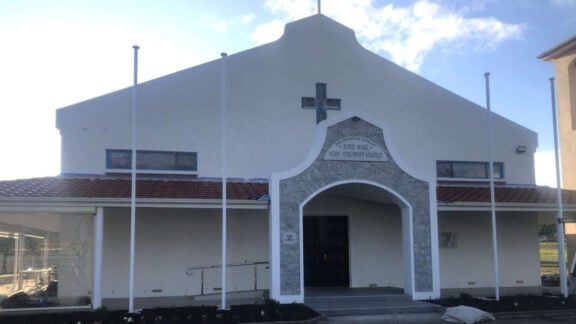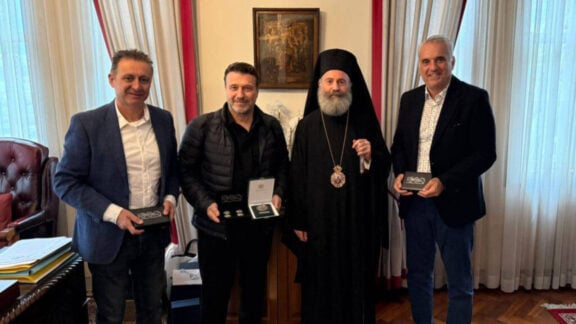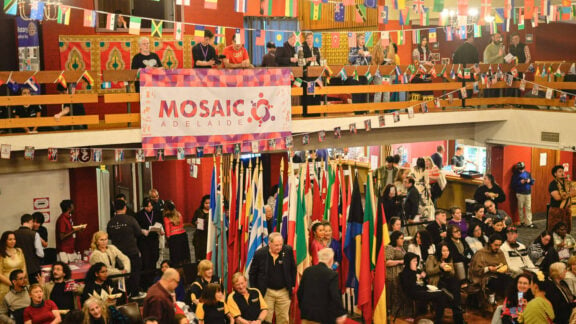Rapid developments in technologies like artificial intelligence offer great promise but also pose a challenge to nations: how to secure prosperity, security, and sustainability at a time when technology grows increasingly central to all three.
For Greece, as a middle-sized EU Member State, international connections are crucial to its prospects as a technology hub or ‘innovation nation’. Last week’s selection of Athens as the site of one of the first seven EU ‘AI factories’ indicates how international collaboration can help to build national tech ecosystems, scale the deployment of existing technologies and develop new tech to meet regional and national needs. This is especially so for technologies needed to help solve urgent global challenges such as public health and climate change.
At the recent COP29 climate conference in Baku, Azerbaijan, the Greek pavilion (εθνικό περίπτερο) hosted an international discussion on strengthening national systems of innovation for collaborative research, development and deployment for climate technology with participants from Europe, Africa and Asia.
The presence of a national pavilion at the annual COP can be a major asset for a nation’s climate diplomacy. While actual negotiations are held in meeting rooms far from the pavilions, a pavilion enables a country to present its work and priorities to a global audience and to host other nations, international institutions, experts and businesses for events and networking. The Baku COP was only the second time Greece hosted a national pavilion, following the Dubai COP last year.

The event on international innovation partnerships at the Greek pavilion was organised by the UN Climate Technology Centre & Network, which is the UN body that provides technical assistance to developing countries for technologies related to climate change.
The keynote speaker, Professor Edeltraud Guenther, Director of United Nations University – FLORES, presented insights on the role of national systems of innovation in enabling climatetech collaboration. Her key messages were about targeted impact from the outset of new research projects, not neglecting the importance of communication; the need to factor in sectoral and institutional contexts; and the need for both public legitimacy and urgency of action. The example of the development of Covid vaccines underlined the potential to act fast.
The key role of government in encouraging R&D was emphasised by Magnolia Tovar of the Future Cleantech Architects think-tank, who presented the results of a recent multi-country survey on storage for renewable energy. Ms Tovar noted that government can both fund R&D directly and use laws and policies to reduce the risks of private investment.
The issue of electricity storage and the renewable energy transition was also addressed, in the Greek context, by Professor Maria Gavouneli, Director General of ELIAMEP (the Hellenic Foundation for European and Foreign Policy). Professor Gavouneli noted that Greece, having emerged from financial crisis only to be hit with multiple extreme weather events like wildfires and floods, has worked to enhance innovation while addressing immediate concerns. This has involved building on existing capacities, for examples using Greek expertise in submarine cables to connect Greek islands to the mainland electricity grid, enabling the ‘greening’ of the islands’ electricity.

In addition, Professor Gavouneli noted the value of partnership between the market and academia to building an innovation habitat and reversing the ‘brain drain’ from the crisis years. She also mentioned the contribution of the diaspora, noting that Greece is ‘building on our very richly endowed human capital that is spread around the world’.
Other speakers shared practical experiences of international innovation partnerships. Dr Surachai Sathitkunarat, President of Thailand’s Office of National Higher Education Science Research and Innovation Policy Council, discussed Thailand’s partnership with South Korean researchers to develop a national hydrogen strategy, made possible by CTCN assistance delivered by Korea’s National Institute of Green Technology. Dr Joel Onyango, from CTCN Network member the African Centre for Technology Studies, discussed the setup of an AI institute to offer direct service solutions with AI. He also reflected on the value of diversified international partnerships to enable locally appropriate solutions.
In the era of the Paris Agreement, international climate tech cooperation is on the global agenda to stay. Convening dialogues such as these at the Greek pavilion is just one way that Greece declares itself present in the shared work of harnessing technology to respond to climate change.
*Stephen Minas is vice chair of the CTCN Advisory Board, writing here in a personal capacity.









